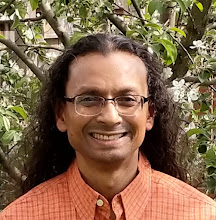Haunted by guilt over Bhishma's sacrifice, Santanu had all but lost the will to live. Regardless, he knew he had to father sons to ensure successors for the throne, and this he did. First born was Chitrangada, followed a couple years later by Vichitravirya, and as soon as Chitrangada became an adult, Santanu passed away. Bhishma then installed Chitrangada as king of Hastinapura.
Chitrangada always felt he was in Bhishma's shadow, and this insecurity drove him to extremes. He did everything he could to try to prove he was Bhishma's equal. He trained relentlessly in order to master all of the weapons of war and challenged anyone willing to prove their prowess against him in battle. To Chitrangada's credit he was victorious against all kings and warriors that came to challenge him and his fame spread throughout the land.
The king of the gandharvas then approached him for a duel. Bhishma tried to warn Chitrangada that gandharvas, like apsaras are from the heavenly realms and have astral powers that exceed those of mere mortals, but Chitrangada didn't listen, and instead thought he finally had an opportunity to outdo Bhishma in battle.
Chitrangada and the gandharva king met on the battlefield of Kurukshetra and a fierce battle took place, but just as Bhishma feared Chitrangada was killed. Bhishma now had no choice but to install Vichitravirya on the throne who was very weak and frail due to his phthisis. Bhishma became eager to get him married so an heir would be produced quickly as it seemed that what little strength Vichitravirya had left was quickly fading.
The king of Kasi had announced a self-choice ceremony would be held for his three daughters and Bhishma thought they would be excellent wives for Vichitravirya, but the problem was how to get them. According to the rules of a self-choice ceremony, each daughter would choose a husband from among the attending kings, and the odds of any one of them picking the frail and weak Vichitravirya would be next to nothing. Bhishma reflected on this and decided that if there was a solution to be had it would be found in the ancient and sacred scriptures.
A few days later he had formed a plan, so he went to see Satyavati to discuss it. Satyavati's thinking was along the same lines and asked, "If we can't send Vichitravirya to it then what do you suggest?"
Bhishma opened the sacred text he was holding, "It says here that there are eight means by which a man may claim a woman as his wife: he may receive her as a gift, he may trade goods for her, buy her with money, he may kidnap her while she is conscious, kidnap her while she is drugged, he may ask her parents for consent, ask her to marry him directly, or finally accept her proposal for marriage."
Satyavati frowned, "No one practises most of the things you’ve mentioned anymore."
"But they are still all considered valid."
"What are you trying to suggest?"
"I want to go and kidnap all three daughters during the ceremony."
"You can’t be serious. I can't condone such a show of disrespect to the king of Kasi and his daughters."
"Think of our kingdom. You know yourself that it is highly unlikely that any princess would choose Vichitravirya for a husband. As Regent and Queen, it is our duty to ensure a successor to the throne. If you have a better idea, then please tell me."
Satyavati had none and therefore no choice but to agree to Bhishma's request. After he left, she still couldn’t help feeling that something bad was going to come of this . . . stealing of brides.
The three daughters of the king of Kasi were enjoying some tea and biscuits when king Salya entered the room. They were visiting him at his palace, the fifth palace they had visited so far in their tour of neighbouring kingdoms, for after the self-choice ceremony was announced many kings invited the daughters to visit them in hopes of winning their favour at the upcoming ceremony.
Salya was tall with broad shoulders and muscular arms. The princesses smiled secretly to each other as the previous kings were nowhere near as handsome by comparison. Salya bowed and spoke formally, "Would the princesses please do me the honour of accompanying me outside to view my pride and joy?"
The princesses all rose and replied, "It would be our pleasure."
Salya led them outside and then through the stables. The younger daughters began to wrinkle their noses at the smell and watch carefully where they were stepping, but the eldest daughter didn't seem to care. Past the stables, Salya stopped in front of a fence enclosing a large field where four majestic horses were galloping, but as soon as they saw Salya they came running to the fence to greet him. Salya petted and hugged each of them around their necks, while playfully speaking with them as if they were his children.
The large horses made the younger daughters very nervous so they kept their distance, but the eldest, Amba, came next to Salya and began petting and talking with the horses as well. When Salya turned and saw her, his heart swelled like never before.
Footnotes
1. Derived from: Adi Parva, Section CI, p. 218-219.
2. Derived from: Adi Parva, Section CII, p. 219-220.


No comments:
Post a Comment